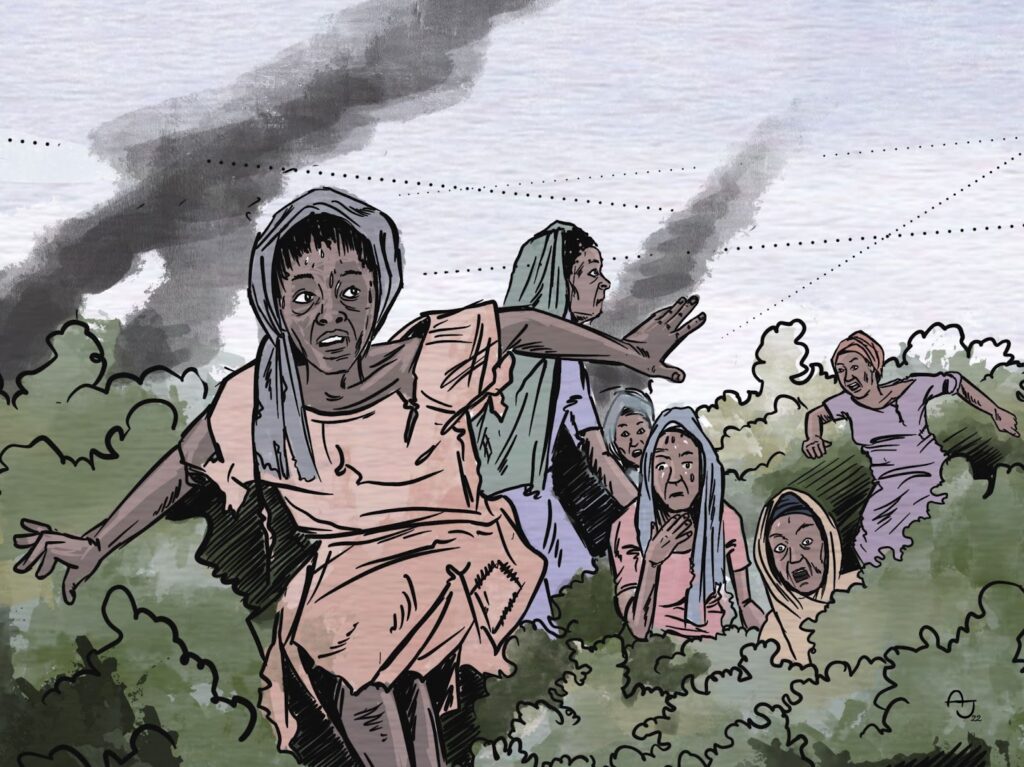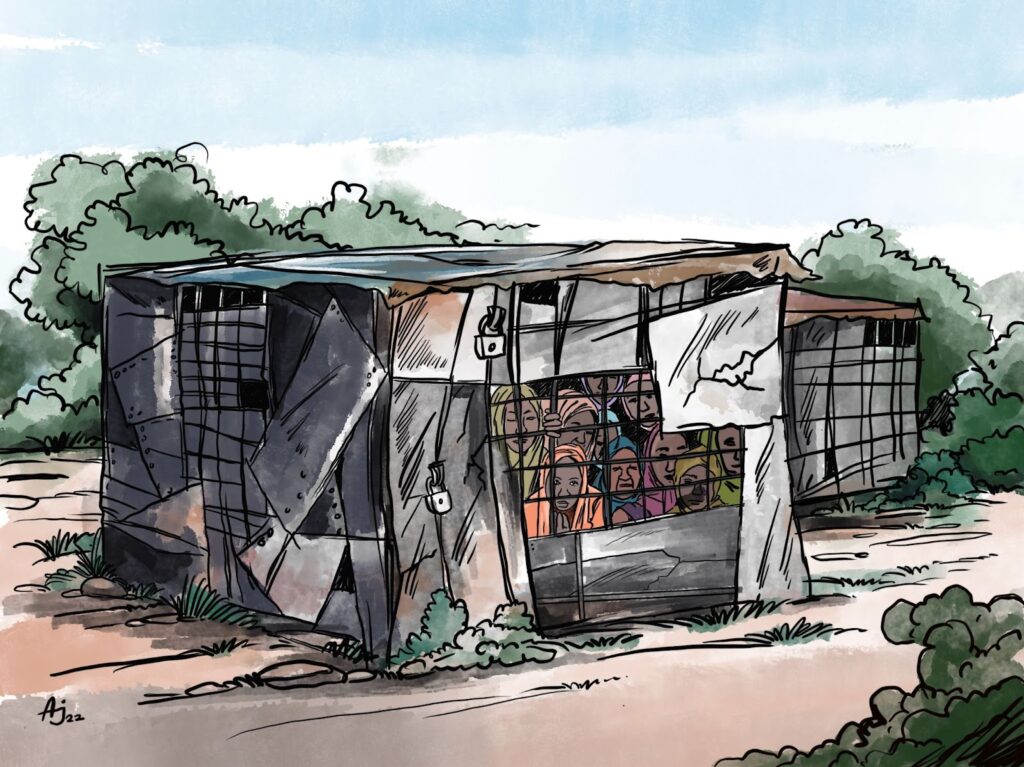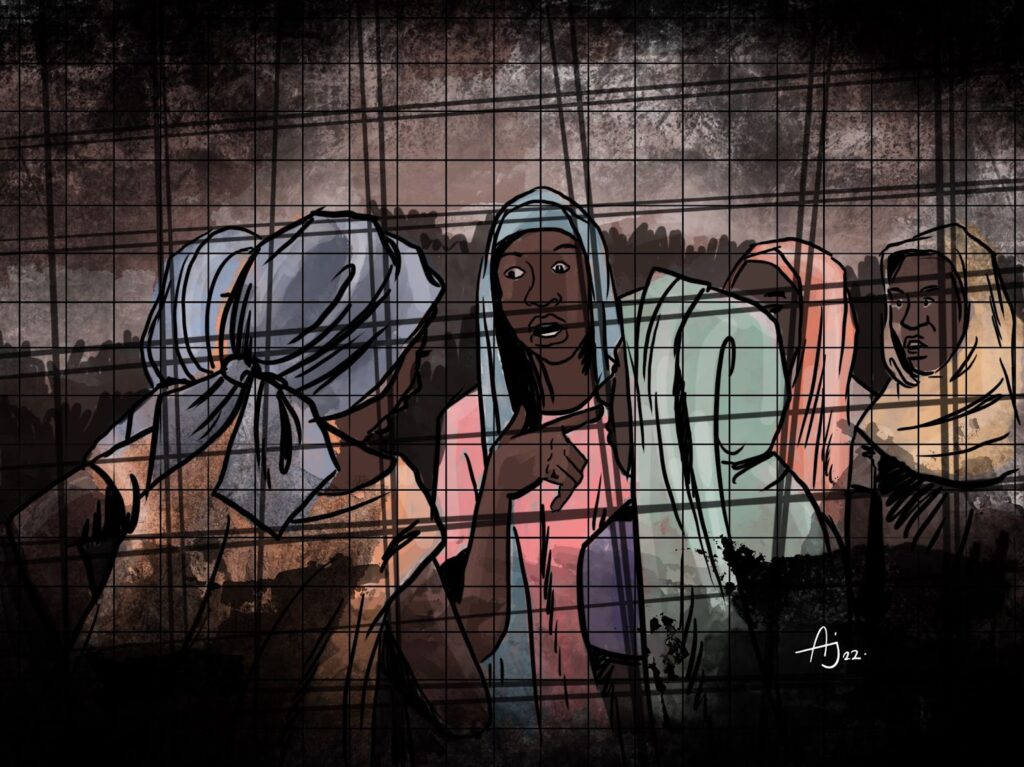545 Days (1): A Great Escape From The Heart Of Terror
Humanitarian worker Jummai Inuwa survived 18 months in ISWAP captivity, emerging to tell an incredible story of how she was abducted, her life in captivity and her escape. This is the first part of her story, told exclusively to HumAngle.
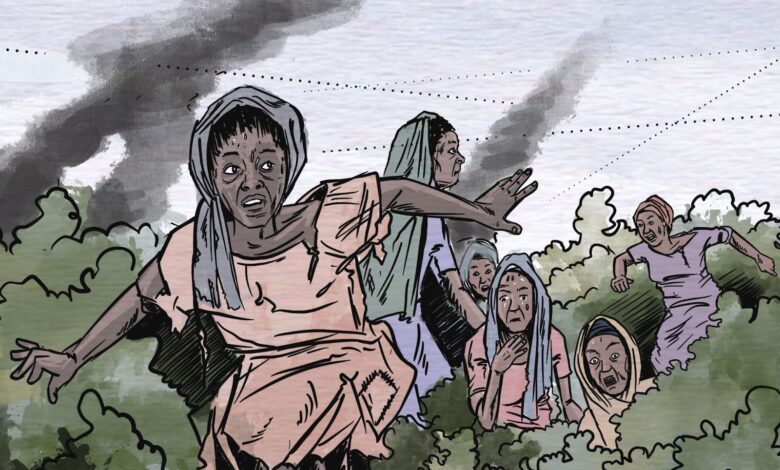
“Today is the D-Day of our escape,” abducted humanitarian worker Jummai Inuwa said firmly to the other women in her cell.
At dawn that day, she had spent time chatting with some of the friendly wives of the Islamic State West Africa Province (ISWAP) commanders from whom she usually got titbits of information. What they told her gave Jummai confidence the moment for their escape might be coming.
Now her fellow captives – Susan, Martha, Mariya, Malakaliya, and Grace, listened to her plan. They nodded eagerly, excitement and fear written all over them.
They were held in a place she referred to as Sijjin (an Arabic term for a cell), made of sheet metal scavenged from scrap. They were in poor condition, months of lack of food and sickness had weakened them. The beatings their captors had administered were taking their toll. The women had not had a good sleep in the last four days.
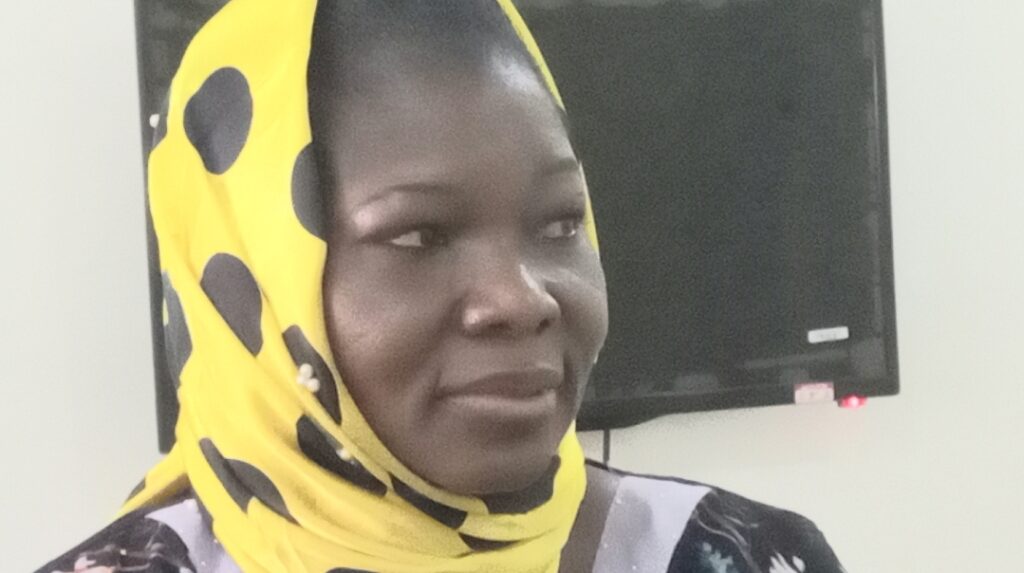
For four days, the skies around Maikoko, one of the deadliest Islands of Lake Chad in Northeast Nigeria, had been shrouded in dark clouds. There were ceaseless bombardments by the Nigeria Air Force fighter jets.
Close to their cell was the Islamic State of West Africa Province’s (ISWAP) department for making bombs and other improvised explosive devices (IEDs). A restricted area, it also served as a station for suicide bombers.
Jummai knew that the previous night, four well-trained young men, all strapped with suicide vests, snuck into the camp of advancing troops of the Nigerian military. Soon, the sporadic shooting followed by four deafening blasts signalled that the mission may have been carried out.
This act may well have been the trigger for what turned out to be an intense counterattack on the ISWAP camp.
The Great Escape
She could hear the fighting was coming closer.
From time to time, situation reports filtered from the terrorists’ walkie-talkies, each time a military jet dropped bombs, or a combat chopper sprayed bullets over the island.
On April 17, the Maikoko area of the Lake Chad, was torn by the sounds of different types of assault rifles and continuous air bombardments.
The group had deployed all that was left of its now lean arsenal to keep the advancing Nigerian troops at bay. It was not working. The moment Jummai had anticipated, the moment she had tried to gauge by questioning the commanders wives was about to arrive.
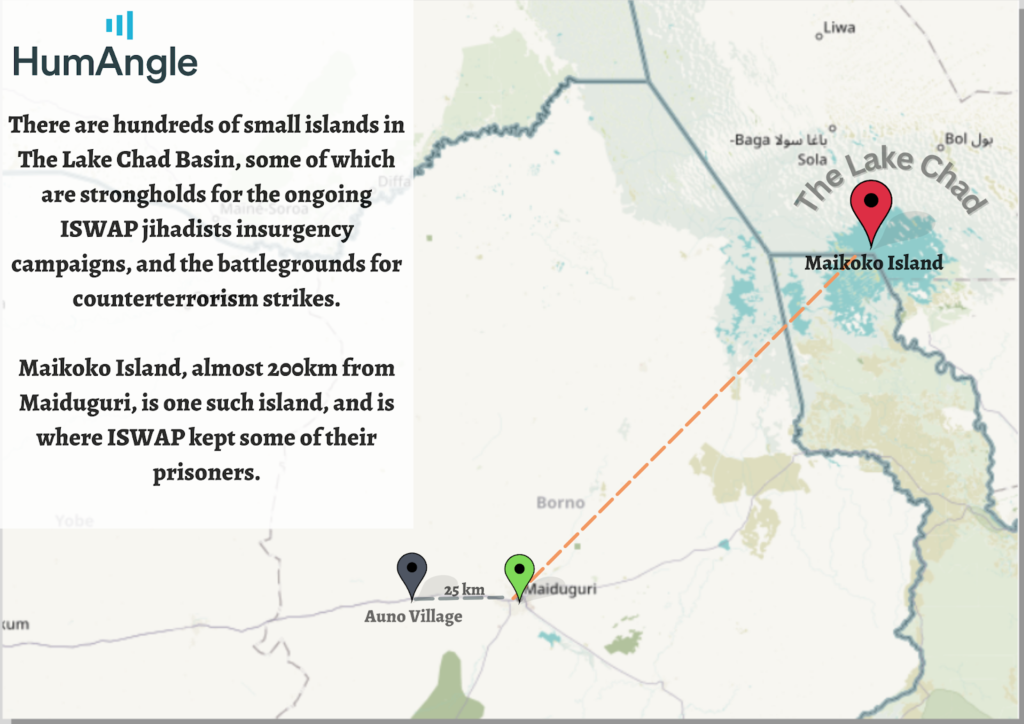
The women and children captives were to be ordered to move to a safe location under some thick, low foliage.
“We have to move now or never. If we slack off and this military operation ends, then we are finished,” Jummai warned as she scrutinised the situation from behind the walls of their prison.
This was the moment. It was time for their great escape. If they failed, they would surely all be killed.
Boko Haram Boys
Jummai recalls with clarity the events of the last days that led up to her abduction on Oct 19 2020.
She was the staff of one of the popular local NGOs based in Maiduguri, Borno state. She had been working in Biu local government area, before returning to Maiduguri.
On her way back she stopped at her home village of Midda in Kwaya Kusar local government area, where she took a day off to visit and condole with some bereaved relatives. Her stay in the village was only for a few hours, as she had to leave the next morning.
Somewhere near the village of Auno, the taxi she had boarded approached a collection of vehicles on the road. Suddenly there was fear in the car that what had appeared to be a military checkpoint could be something else.

“From afar, we sighted uniformed persons on the way, and we thought it was a military checkpoint. But an elderly man in the vehicle said ‘this could be Boko Haram boys.’
“Before we could make sense of what was happening, we were already amidst the terrorists.”
The men had stopped a fuel tanker and they were in the process of syphoning off the fuel into jerrycans. They stopped the car she was travelling in.
“From then things happened very fast” she said.
Jummai has a remarkable memory. She remembers the scene in snatches of precise detail; Behind them a Volkswagen Golf with a lone driver was trying to make a U-turn to escape. A man was lying down flat on his stomach as one of the boys was struggling to tie him from behind, he was too large to have his wrists bound. They dragged a woman from another vehicle and pushed her into a Hilux van.
When they came to her vehicle, they saw that she was the only female.
“They asked the driver in a harsh tone, ‘where are the infidels in this car’? And the driver said ‘no I don’t have any infidel in the vehicle’.”
The man immediately went to the front of the vehicle and levelled his gun at them.
“We were all scared. Somehow, he changed his mind and came to the side of the driver.”
The gunman had changed his mind in order to test them to see if they were muslims. He demanded the driver recite the Islamic article of faith, the kalimatushahada, for them to be sure. The driver did, and then they asked three other people the same thing and they all passed the test. Jummai, a Christian, would be next. But they seemed to forget about her.
“I was at the back and they did not bother about me, and they left.” Were they about to be let go? The driver told them to lower their gaze so that they would not further provoke the men. There was still a chance that the car might be allowed to pass on.
Jummai was wearing a long gown, with a short veil. She pulled it down, covering her face. They sat there in the hot car, waiting.
Then a young boy with a gun walked back to the car. It was then that he noticed she was in the back.
“He sighted me, he asked that I should recite the kalimatushahada and I told him I don’t know how to do that, except he wanted me to say the Lord’s Prayer.”
“He then ordered ‘come out of the car, you bloody infidel!’. And before I could get out about 20 persons with guns surrounded me and pointed the guns at me.”
One of them went back to the driver and asked for her luggage. The driver said all she had was the only nylon bag she was holding. One of her phones, and her laptop were inside her main bag in the boot of the vehicle. Leaving them there was to be a fortunate thing.
They took her from the car and placed her in the Hilux van with the other lady.
“We started pleading with the driver, whom we heard being called Musa. He said he would let us go only if we could recite the kalimatushahada. We pleaded on and on but he did not listen to us. So, we waited until they were done with filling up their jerrycans – about 50 of them – with the fuel from the hijacked tanker and; then they refuelled their vehicles too before they started driving into the bush towards the heart of Lake Chad.”
That was the beginning of a journey to the unknown that would last for 545 days. It is an incredible story of survival, resilience, drama, of anger and hatred and also -at times- kindness.
Jummai’s detailed memory of the things that she has experienced provides a wealth of detail about the life of captives, the wives, and the fighters, of the Islamic State in West Africa.
This will be told in part two.
Read the other parts below:
Support Our Journalism
There are millions of ordinary people affected by conflict in Africa whose stories are missing in the mainstream media. HumAngle is determined to tell those challenging and under-reported stories, hoping that the people impacted by these conflicts will find the safety and security they deserve.
To ensure that we continue to provide public service coverage, we have a small favour to ask you. We want you to be part of our journalistic endeavour by contributing a token to us.
Your donation will further promote a robust, free, and independent media.
Donate HereStay Closer To The Stories That Matter

